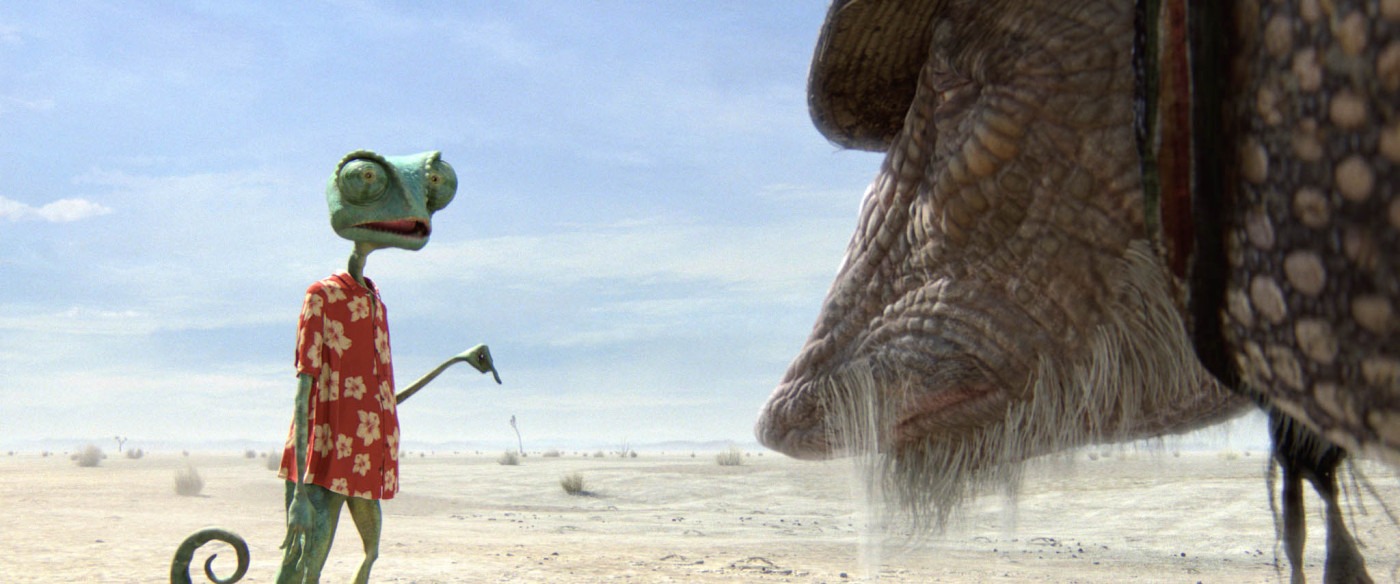The Philosophy of ‘Rango’: Fabricating Identity
Despite being a movie about a funny little lizard getting into trouble with a funny little gang of funny little creatures, Rango explores some of the most complex themes of existentialism and self-realisation that I have ever witnessed in film. Its portrayal of the protagonist’s journey to find out who he really is leads the audience to conclude of their own identity things they never even considered. This is the question underpinning Rango: what makes someone who they are?
Rango starts off the film in an existential vacuum. The reality that confines him and the characters he is trapped with are a result of his own imagination, leading him to conclude that character necessitates conflict. Thus, once his tank shatters on the highway he is finally thrust into existence as a clean slate, he thinks he can fully define himself.
The film explores the idea of whether someone can fabricate their existence from nothing
From when Rango arrives at Dirt to the point when he is forced out, the film explores the idea of whether someone can fabricate their existence from nothing. Rango creates absolutely everything about himself from scratch, even his name, and he survives under this façade for a while. The people around him believe this new persona of the confident gunslinger, and in time Rango begins to believe it himself. This is why the introduction of Rattlesnake Jake is so pivotal for the story and Rango’s journey of self-discovery. Jake is the actualised version of what Rango proclaims himself to be, and when faced with him Rango is forced to admit that he is a fraud, something he had always really understood but never wanted to come to terms with.
Only after his confrontation with Jake does Rango reassess all his existential angst and the conclusion which emerges from the surreal sequences that follow his crossing to ‘the other side’ is a deeply impactful one. Rango realises that his identity does not come from any narcissistic need to be the hero of his own story but because people rely on him. It is entirely unexpected in this increasingly individualist world that a movie would have such a compassionate message: that one’s identity is defined by those around them and vice versa.
This point is expressed subtly in the repeated act of drawing the rectangle around Rango’s head
It is telling that despite all the lies and the fabrications Rango employs throughout the film, they come to nothing when he is met with real danger. Only when the people that Rango loves need real help does he become this hero, not because of any greater delusion he may have had in the desert, but because his people need him. Our identities, and by extension our existence is meaningless without human connection. This is why Rango struggles with identity when he is in the tank at the start of the movie, because he lacks human connection.
This point is expressed subtly in the repeated act of drawing the rectangle around Rango’s head. Throughout the film Rango draws the rectangle solely around his own head, hinting at his selfish motivations behind trying to be the hero in his own story. However, when the spirit of the west draws the rectangle, Rango is but one figure surrounded by empty space, the empty space that needs to be filled with his loved ones for his existence to have purpose.
This is a weirdly beautiful interpretation of what forges our identity as humans and not one you often see represented. Usually, self-discovery and the pursuit of purpose are framed as individual endeavours that require immense effort and self-reflection which inevitably end in more confusion and existential crisis, as Rango experiences in the film. Who would have thought a funny little lizard, and his funny little gang could hold so much wisdom.

Comments